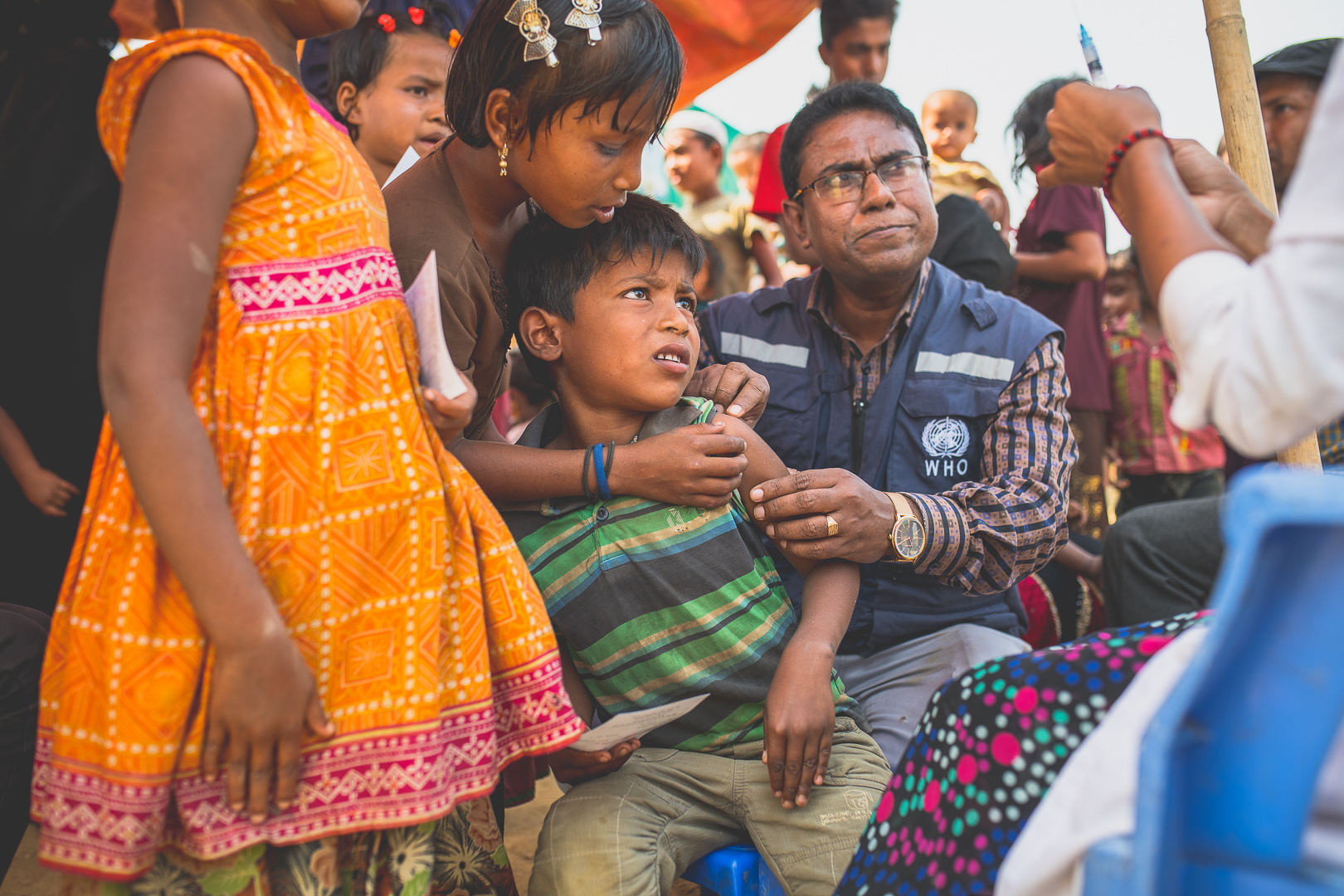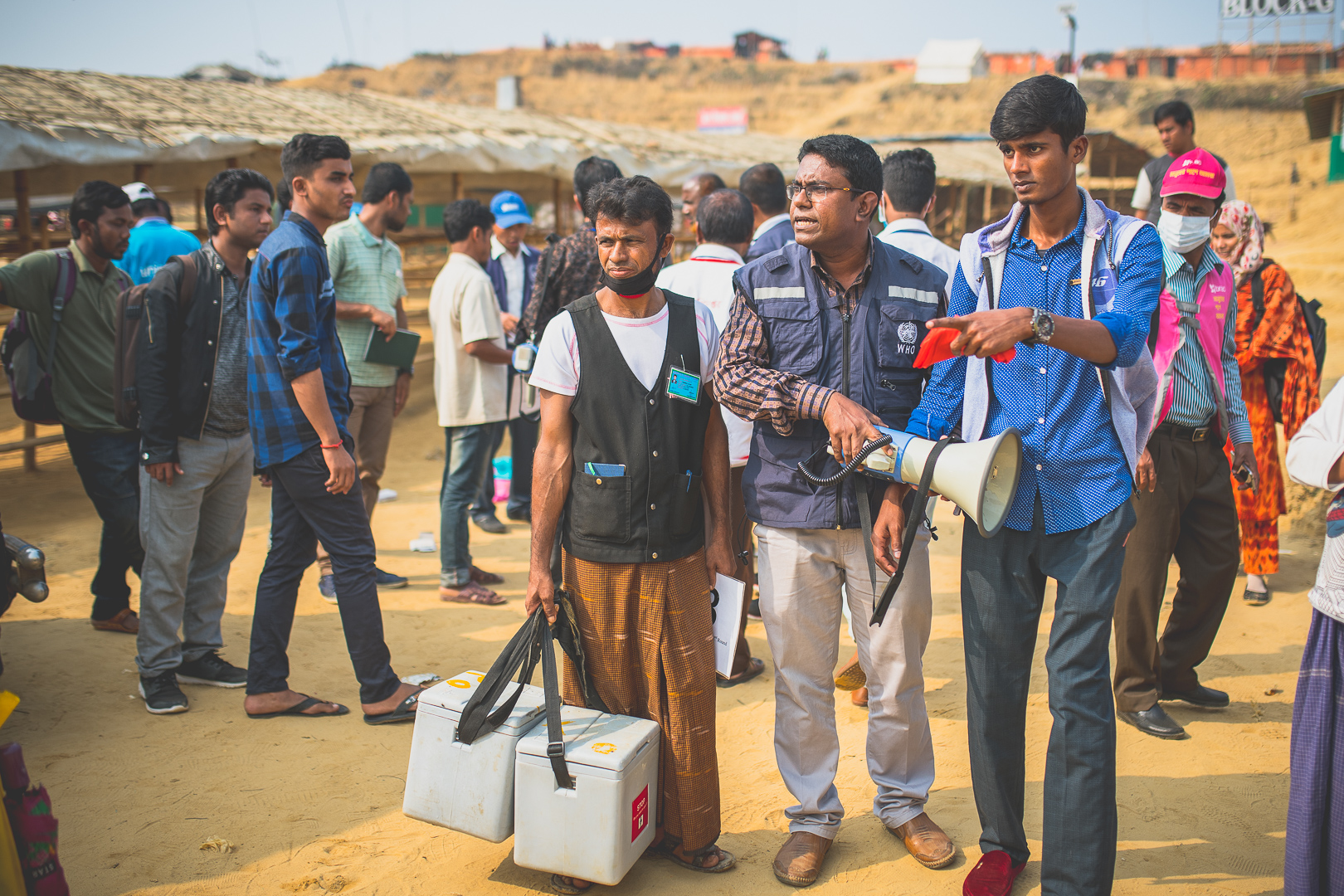Dr Chiranjit Das is a National Professional Officer-Immunization for WHO in Bangladesh. As part of his job, he regularly contacts mazihs, local leaders, imams, parents, teachers, and children. “In Cox’s Bazar, we have held several vaccination campaigns for the Rohingyas in a very short period of time. We are vaccinating a large number of people, most of whom have no previous history of immunization. There are challenges as well as successes.”
Repeated vaccination rounds can be tiring, even for the community. Local leaders, mazihs, and imams play an important role, as they can influence and convince the community. Similarly, teachers and female vaccinators have better access to families and hence, a greater influence on the community, says Dr Das.

Sometimes it is about convincing one child at a time. “I remember during one of my visit to an area where the community was resisting vaccination. The children ran away as we approached. So we first convinced one child, and after giving him the vaccine we said: ‘can you tell your siblings and friends that it is ok?’ He quickly brought them, and we gave them the vaccines. We vaccinated many children that day. As the other children saw that the vaccines were fine and not too painful, they too came, and then parents started bringing their children.”
“Only if we could, we would have immediately established routine immunization for children in the camps. This is something we are currently working on very intensely so that when a child is born, he/she receives all vaccines available under the Expanded Program on Immunization (EPI) schedule. This will protect the children.”

Dr Das believes that vaccines are important not only for individuals, but for the community and the country as a whole.
“Vaccines help reduce the disease burden thereby positively impacting the economy in the long run,” he says.
Dr Das has been working for WHO for 10 years. “I really enjoy my job and
this is probably why I have been doing it for 10 years,” he says.
In 2002, he graduated from Rangpur Medical College in north Bangladesh, and then completed his Masters in Public Health. He has worked on several immunization campaigns worldwide, including measles campaigns in Ethiopia and Timor-Leste and polio vaccination campaigns in Sierra Leone and Nigeria. “Working in other countries broadens your horizons. But I have always enjoyed working in my own country, ” he says.
